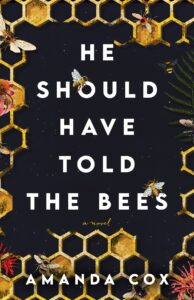By Amanda Cox, @AmandaCoxWrites

Have you ever been cooking and accidentally bumped your hand on the side of the oven while pulling out a hot pan? You probably did what I did—yanked your hand away from the source of pain. Whenever we face physical pain, we have a natural inclination to escape it. To pull away. But when facing emotional, mental, and spiritual trials, sometimes it is best to lean into it and dig deeper into the true source of the pain. As a writer, one thing I’m learning to lean into: Imposter Syndrome.
Imposter Syndrome is defined as feelings of anxiety related to the struggle to believe that one’s success is deserved or has been legitimately achieved as a result of one’s efforts or skills.
Anyone ever been there? Finished that manuscript and struggled to fully celebrate that monumental accomplishment, because you are caught up in worries that it might not measure up? That you’ll submit it to industry professionals and they’ll see right through your lack of skill? Or have you ever won an award for your writing and been worried that someone will read your work and figure out that you didn’t deserve those accolades after all?
I venture to say that all of us have been there before. Maybe for a moment. Or maybe it’s even paralyzed us from starting a project we’ve dreamed of for years. This fear that we will step out and try, putting ourselves out there and the world will discover what we already suspect—that we’re frauds. That we don’t quite measure up.
What if I told you…we don’t measure up. And that it’s perfectly okay. We were never meant for that kind of measuring. A beautiful picture of this can be found in one of my favorite books.

The first imposters…
Adam and Eve were walking through Eden, existing in a state of perfection when the serpent convinced them to partake of forbidden fruit to become “like” God. Adam and Eve knew God had something they didn’t, and instead of being content with who God created them to be, they were deceived. In partaking of the fruit, the first imposters were born. The truth was, they could never become “like” God in the way the serpent proposed. They were created beings, given a purpose by their creator. God had already said humankind was created in his likeness. They had the very thing they sinned in an attempt to obtain. Likeness with God.
When Jesus came, humanity was given the chance to leave their imposter status behind and become imitators. Ephesians 5:1 (NLT) says, “Imitate God, therefore, in everything you do, because you are his dear children.”
An imposter attempts to deceive by using an assumed identity that does not belong to them. An imitator, however, is one who follows another as a model.
An imitator of Christ does not try to become Jesus. They follow after Him as an example in all that they do, recognizing that they can not measure up to all that He is. They understand that their areas of weakness are opportunities for His strength to shine through. When my daughter was a toddler she imitated everything I did, not because she was trying to deceive anyone of her identity, but because at that stage of her life she found a measure of her identity in me.
Often we feel like imposters when we are looking for validation, identity, and self-worth in the wrong places. If you struggle to embrace your imitator status, lean into that uncomfortable space and do some deep evaluation of who you were created to be. Your writing and the path your writing takes doesn’t have to look like the author next to you to be valid and beautiful.
Dear writer, you might feel like an imposter today, but you already have the very thing you are striving to obtain. You are created in the image of God by a creative God. If the passion to write has been placed in you, write as an imitator of Christ. Embrace the shortcomings you see as opportunities to allow God’s strength to shine through. Grow and cultivate that beautiful gift.
Beekeeper Beckett Walsh is living her dream, working alongside her father in their apiary, until his untimely death sends her world into a tailspin. She suddenly finds she must deal with a new part owner of the family business–one who is looking to sell the property. Beck cannot fathom why her father would put her into the position to lose everything they built together.
When Callie Peterson is named in the trust of a man she’s never heard of, she’s not sure what to do. Her fledgling business has just taken wing and her mother has reentered her life asking for help getting into rehab for her lifelong substance abuse issues, making Callie’s financial situation rather . . . precarious. She’s sure she has no right to someone else’s farm, but the money from the sale could solve her problems and give her the stability she’s always craved.
As these two women navigate their present conundrum, they will discover a complex and entangled past full of secrets–and the potential for a brighter future for both of them.
Amanda Cox is the author of The Edge of Belonging and The Secret Keepers of Old Depot Grocery, both of which were the Christy Award Book of the Year in 2021 and 2022, respectively. She holds a bachelor’s degree in Bible and theology and a master’s degree in professional counseling, but her first love is communicating through story. Her studies and her interactions with hurting families over a decade have allowed her to create multidimensional characters that connect emotionally with readers. She lives in East Tennessee, with her husband and their three children. Learn more at AmandaCoxWrites.com


